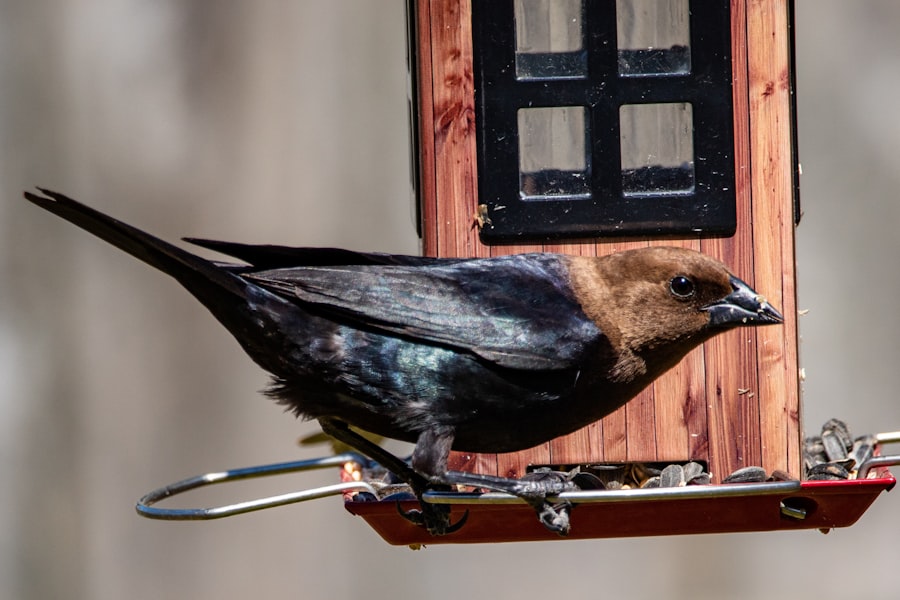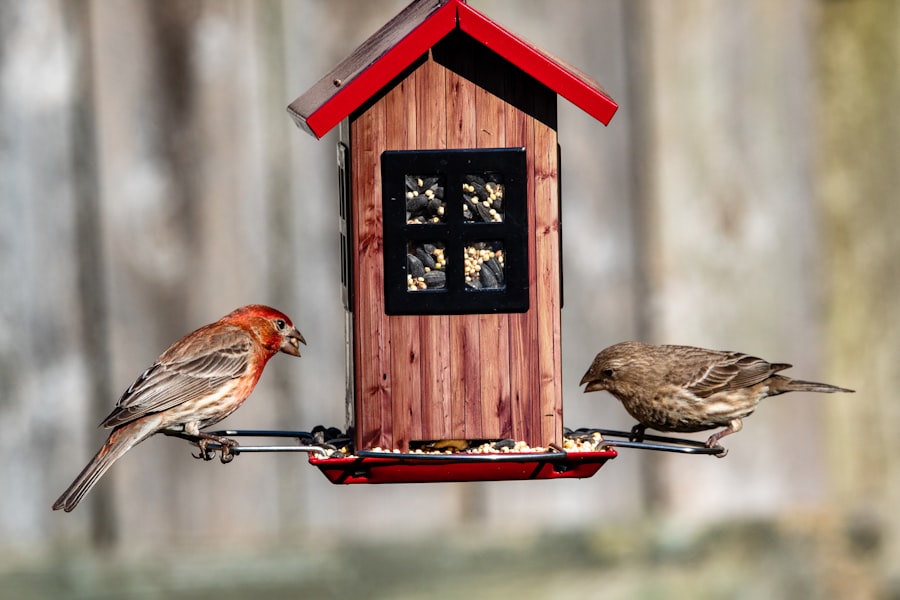In recent years, there has been a significant increase in backyard chicken keeping. This trend is driven by various factors, including a desire for sustainable living, access to fresh eggs, and the enjoyment of raising animals. Many individuals are attracted to the idea of maintaining a small flock of chickens as a means of connecting with their food source and reducing their environmental impact.
The COVID-19 pandemic has further fueled interest in self-sufficiency and food security, prompting more people to consider raising chickens. The rise of urban farming and homesteading has also contributed to the growing popularity of backyard chicken keeping. As awareness about food sources and production conditions increases, there is a greater emphasis on home food production.
Backyard chickens offer individuals the opportunity to produce their own eggs while enjoying the benefits of connecting with nature and adopting a more sustainable lifestyle. The increasing availability of resources and information on chicken raising has empowered more people to take on the responsibility of caring for a small flock in their own backyard.
Table of Contents
Key Takeaways
- Backyard chicken keeping is a rising trend among urban and suburban dwellers.
- Keeping backyard chickens can provide benefits such as fresh eggs, pest control, and fertilizer for gardens.
- Before getting backyard chickens, consider factors such as local regulations, space, and time commitment.
- A growing number of people are keeping backyard chickens, with the trend particularly popular in urban areas.
- Urban chicken keeping is becoming increasingly popular as people seek sustainable and self-sufficient living options.
- Challenges of keeping backyard chickens include predator attacks, disease prevention, and proper coop maintenance.
- Tips for successfully raising backyard chickens include providing proper housing, nutrition, and healthcare for the birds.
Benefits of Keeping Backyard Chickens
Fresh and Nutritious Eggs
One of the most significant advantages of raising backyard chickens is having access to fresh, organic eggs. By keeping their own chickens, individuals can ensure that their eggs come from healthy, well-cared-for hens that are not exposed to the same stressful conditions as commercial egg-laying operations. This leads to higher quality eggs that are not only fresher but also more nutritious.
Natural Pest Control and Fertilization
Backyard chickens also offer natural pest control and fertilization for gardens. Chickens are excellent foragers and will eagerly consume insects, weeds, and kitchen scraps, reducing the need for chemical pesticides and fertilizers. Their manure is also a valuable source of nutrients for gardens, helping to improve soil quality and promote healthy plant growth.
A Rewarding and Educational Experience
Furthermore, the act of caring for chickens can be a rewarding and educational experience for both adults and children, fostering a greater appreciation for nature and the food production process.
Considerations Before Getting Backyard Chickens

Before diving into the world of backyard chicken keeping, there are several important considerations to take into account. First and foremost, it is crucial to check local regulations and zoning laws regarding the keeping of chickens. Many municipalities have specific ordinances that dictate the number of chickens allowed, coop requirements, and distance from neighboring properties.
It is essential to ensure compliance with these regulations to avoid potential fines or conflicts with neighbors. Another important consideration is the time and effort required to care for chickens. While they are relatively low-maintenance animals, chickens still require daily attention for feeding, watering, and egg collection.
Additionally, coop cleaning, predator protection, and healthcare maintenance are all ongoing responsibilities that should be factored into the decision to keep chickens. It is important to realistically assess one’s ability to commit to these tasks before bringing chickens into the backyard. Furthermore, potential chicken keepers should consider the initial investment required for setting up a coop and purchasing necessary supplies.
Coops should provide adequate space for the number of chickens being kept, as well as protection from predators and the elements. Additionally, feeders, waterers, bedding, and healthcare supplies are all essential for properly caring for chickens. Taking the time to research and plan for these initial expenses can help ensure a successful and sustainable chicken-keeping experience.
How Many People Keep Backyard Chickens
The number of people keeping backyard chickens has been steadily increasing in recent years, with a diverse range of individuals and families taking on this rewarding hobby. According to the 2019-2020 National Pet Owners Survey conducted by the American Pet Products Association (APPA), approximately 1% of U.S. households own chickens as pets. While this may seem like a small percentage, it represents a significant increase from previous years and reflects the growing interest in backyard chicken keeping. Furthermore, a survey conducted by the U.S. Department of Agriculture (USDA) in 2019 found that there were over 13 million backyard poultry flocks in the United States. This includes not only chickens but also ducks, geese, turkeys, and other poultry species kept by individuals for personal use. The survey also revealed that the majority of these flocks were located in urban or suburban areas, indicating that backyard chicken keeping is not limited to rural settings. The increasing popularity of backyard chickens can also be seen in the growing number of online communities, forums, and social media groups dedicated to chicken keeping. These platforms provide a space for chicken enthusiasts to connect, share knowledge, and seek advice on all aspects of raising chickens. The sense of community and support within these networks further demonstrates the widespread appeal of backyard chicken keeping.
The Growing Popularity of Urban Chicken Keeping
While backyard chicken keeping has traditionally been associated with rural or suburban settings, there has been a notable increase in urban chicken keeping in recent years. Many cities have revised their zoning laws to allow for the keeping of a small number of chickens within city limits, recognizing the benefits of urban agriculture and sustainable food production. This shift has opened up opportunities for city dwellers to experience the joys of raising chickens while contributing to local food security.
Urban chicken keeping offers unique benefits and challenges compared to rural or suburban settings. In densely populated areas, space limitations may require creative solutions for coop design and management. Additionally, noise concerns from crowing roosters and odor from chicken waste must be carefully managed to maintain positive relationships with neighbors.
However, many urban chicken keepers find that the rewards of fresh eggs, natural pest control, and a deeper connection to their food source outweigh these challenges. Furthermore, urban chicken keeping has become a catalyst for community engagement and education around sustainable living practices. Community gardens, schools, and local organizations often incorporate chicken keeping into their programming as a way to teach about food production, animal husbandry, and environmental stewardship.
This growing interest in urban agriculture reflects a broader cultural shift towards reconnecting with nature and promoting self-sufficiency in urban environments.
Challenges of Keeping Backyard Chickens

Predator Protection
One common challenge is protecting chickens from predators such as raccoons, foxes, hawks, and even domestic dogs. Chickens are vulnerable to attacks, making it essential to invest in secure coop construction and predator-proofing measures to safeguard them from harm.
Coop Cleanliness and Waste Management
Maintaining coop cleanliness and managing waste effectively is another challenge. Proper manure management is crucial for preventing odors, attracting flies, and maintaining good hygiene for both chickens and their caretakers. Regular coop cleaning and proper composting or disposal of manure are important practices for minimizing health risks and environmental impact.
Healthcare Management
Healthcare management is an ongoing challenge in chicken keeping. Chickens are susceptible to various diseases, parasites, and injuries that require prompt attention and treatment. It is important for chicken keepers to educate themselves about common health issues in poultry and establish a relationship with a veterinarian who is knowledgeable about avian care.
Tips for Successfully Raising Backyard Chickens
For those considering or already embarking on the journey of raising backyard chickens, there are several tips for ensuring a successful and fulfilling experience. First and foremost, it is important to start with a well-designed coop that provides adequate space, ventilation, and protection from predators and the elements. Coops should also include nesting boxes for egg-laying hens and roosts for perching at night.
Proper nutrition is essential for maintaining healthy chickens and high-quality egg production. A balanced diet should include commercial poultry feed supplemented with kitchen scraps, greens, and occasional treats such as mealworms or scratch grains. Access to clean water at all times is also crucial for hydration and overall well-being.
Regular observation and interaction with chickens can help identify any health or behavioral issues early on. Monitoring egg production, behavior patterns, and physical appearance can provide valuable insights into the overall health of the flock. Additionally, spending time with chickens can strengthen the bond between caretaker and birds while providing enrichment for both parties.
Lastly, ongoing education and networking within the chicken-keeping community can provide valuable support and resources for navigating challenges and learning best practices. Attending workshops, joining local poultry clubs, and participating in online forums can offer opportunities to learn from experienced chicken keepers and share knowledge with others who are passionate about raising backyard chickens. In conclusion, the rising trend of backyard chicken keeping reflects a growing interest in sustainable living, self-sufficiency, and connecting with nature.
The benefits of fresh eggs, natural pest control, and educational opportunities make chicken keeping an appealing hobby for individuals and families across diverse settings. However, it is important to carefully consider the responsibilities and challenges associated with raising chickens before taking on this endeavor. With proper planning, education, and support from the chicken-keeping community, individuals can successfully raise healthy and happy chickens in their own backyard.
If you’re interested in learning more about how to keep backyard chickens, you might want to check out this article on converting a shed into a chicken coop. It provides helpful tips and advice on how to repurpose an existing structure to create a comfortable and functional living space for your feathered friends.
FAQs
What is the trend of keeping backyard chickens?
The trend of keeping backyard chickens has been growing in popularity in recent years, as more people are becoming interested in sustainable living and producing their own food.
How many people keep backyard chickens?
According to the 2019-2020 National Pet Owners Survey conducted by the American Pet Products Association, approximately 1% of U.S. households, or about 1.1 million households, keep chickens as pets.
What are the reasons for keeping backyard chickens?
People keep backyard chickens for various reasons, including a sustainable source of fresh eggs, pest control, garden fertilization, and as a hobby or educational experience for children.
What are the benefits of keeping backyard chickens?
The benefits of keeping backyard chickens include a sustainable source of fresh eggs, natural pest control in the garden, organic fertilizer for plants, and the enjoyment of interacting with and caring for the chickens.
Are there any regulations or restrictions for keeping backyard chickens?
Regulations and restrictions for keeping backyard chickens vary by location and may include limits on the number of chickens allowed, coop requirements, and noise ordinances. It is important to check local ordinances and zoning laws before keeping backyard chickens.
Meet Walter, the feathered-friend fanatic of Florida! Nestled in the sunshine state, Walter struts through life with his feathered companions, clucking his way to happiness. With a coop that’s fancier than a five-star hotel, he’s the Don Juan of the chicken world. When he’s not teaching his hens to do the cha-cha, you’ll find him in a heated debate with his prized rooster, Sir Clucks-a-Lot. Walter’s poultry passion is no yolk; he’s the sunny-side-up guy you never knew you needed in your flock of friends!







